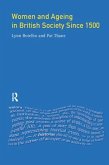For nearly a century, conventional historians have depicted Germany as a rabidly nationalist land, born in a sea of aggression, its nineteenth-century ascent accompanied by militarism and brought to a murderous apex in the Third Reich. Not so, asserts Helmut Walser Smith, who, beginning in 1500, reveals pacific conceptions of the nation and allows us to see the Nazis' extreme form of nationalism not as the dark culmination point of German history but as an essential episode in Germany's centuries-long history of continually conceiving the nation in radically different ways. Whether chronicling the Thirty Years War, the German Enlightenment, the Weimar Republic, the Holocaust or the era of Angela Merkel, Smith has created a new standard for the twenty-first-century.
Bitte wählen Sie Ihr Anliegen aus.
Rechnungen
Retourenschein anfordern
Bestellstatus
Storno








